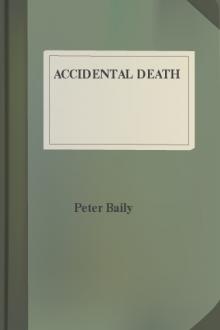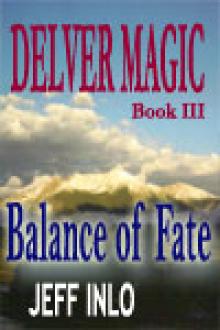Eco: Foucalt's Pendulum by eco foucault (important books to read .txt) 📗

- Author: eco foucault
Book online «Eco: Foucalt's Pendulum by eco foucault (important books to read .txt) 📗». Author eco foucault
* * *
That, I believe, waswhen Belbo fell in love with Lorenza Pellegrini: when he realizedthat she could promise him an unattainable happiness. But I alsobelieve it was through her that he began to be aware of the eroticnature of automated universes, the machine as metaphor of thecosmic body, the mechanical game as talismanic evocation. He wasalready hooked on Abu-lafia and perhaps had entered, even then,into the spirit of Project Hermes. Certainly he had seen thePendulum. Somehow, Lorenza Pellegrini held out the promise of thePendulum.
I had troublereadjusting to Pilade's. Little by little, but not every evening,in the forest of alien faces, I was rediscovering familiar ones,the faces of survivors, though they were blurred by my effort ofrecognition. This one was a copywriter in an advertising agency;this one, a tax consultant; and this one sold books on theinstallment plan¡Xin the old days he peddled the works of Che, butnow he was offering herbals, Buddhism, astrology. They had gained alittle weight and some gray in their hair, but I felt that theScotch-on-the-rocks in their hands was the same one they had heldten years ago. They were sipping slowly, one drop every sixmonths.
"What are you up to? Whydon't you come by and see us?" one of them asked me.
"Who's M*nowadays?"
He looked at me as ifI'd been away for a century. "The Cultural Commission at City Hall,of course."
I had skipped too manybeats.
I decided to invent ajob for myself. I knew a lot of things, unconnected things, but Iwanted to be able to connect them after a few hours at a library. Ionce thought it was necessary to have a theory, and that my problemwas that I didn't. But nowadays all you needed was information;everybody was greedy for information, especially if it was out ofdate. I dropped in at the university, to see if I could fit insomewhere. The lecture halls were quiet; the students glided alongthe corridors like ghosts, lending one another badly madebibliographies. I knew how to make a good bibliography.
One day, a doctoralcandidate, mistaking me for faculty (the teachers now were the sameage as the students, or vice versa), asked me what this LordChandos they were talking about in an economics course on cyclicalcrises had written. I told him Chandos was a character inHofmannsthal, not an economist.
That same evening I wasat a party with old friends and recognized a man who worked for apublisher. He had joined the staff after the firm had switched fromnovels by French collaborationists to Albanian political texts.They were still publishing political books, but with governmentbacking. And they didn't reject an occasional good work inphilosophy¡Xprovided it was in the classical line, headded.
"By the way," he said tome then, "since you're a philosopher¡X"
"Thanks, butunfortunately I'm not."
"Come on, in your dayyou knew everything. I was just looking over the translation of abook on the crisis of Marxism, and I came across a quotation fromAnselm of Canterbury. Who's he? I couldn't even find him in theDictionary of Authors.'" I told him it was Anselmo d'Aosta, andthat only the English, who had to be different from everybody else,called him Anselm of Canterbury.
A sudden illumination: Ihad a trade after all. I would set up a cultural investigationagency, be a kind of private eye of learning.
Instead of sticking mynose into all-night dives and cathouses, I would skulk aroundbookshops, libraries, corridors of university departments. Then I'dsit in my office, my feet propped on the desk, drinking, from aDixie cup, the whiskey I'd brought up from the corner store in apaper bag. The phone rings and a man says: "Listen, I'm translatingthis book and came across something or someone called Motakallimun.What the hell is it?"
Give me two days, I tellhim. Then I go to the library, flip through some card catalogs,give the man in the reference office a cigarette, and pick up aclue.
That evening I invite aninstructor in Islamic studies out for a drink. I buy him a coupleof beers and he drops his guard, gives me the lowdown for nothing.I call the client back. "All right, the Motakallimun were radicalMoslem theologians at the time of Avicenna. They said the world wasa sort of dust cloud of accidents that formed particular shapesonly by an instantaneous and temporary act of the divine will. IfGod was distracted for even a moment, the universe would fall topieces, into a meaningless anarchy of atoms. That enough for you?The job took me three days. Pay what you think is fair."
I was lucky enough tofind two rooms and a little kitchen in an old building in thesuburbs. It must have been a factory once, with a wing for offices.All the apartments that had been made from it opened onto one longcorridor. I was between a real estate agent and a taxidermist'slaboratory (A. Salon, the sign said). It was like being in anAmerican skyscraper of the thirties; if I'd had a glass door, I'dhave felt like Marlowe. I put a sofa bed in the back room and madethe front one an office. In a pair of bookcases I arranged theatlases, encyclopedias, catalogs I acquired bit by bit. In thebeginning, I had to turn a deaf ear to my conscience and writetheses for desperate students. It wasn't hard: I just went andcopied some from the previous decade. But then my friends inpublishing began sending me manuscripts and foreign books toread¡Xnaturally, the least appealing and for littlemoney.
Still, I wasaccumulating experience and information, and I never threw anythingaway. I kept files on everything. I didn't think to use a computer(they were coming on the market just then; Belbo was





Comments (0)